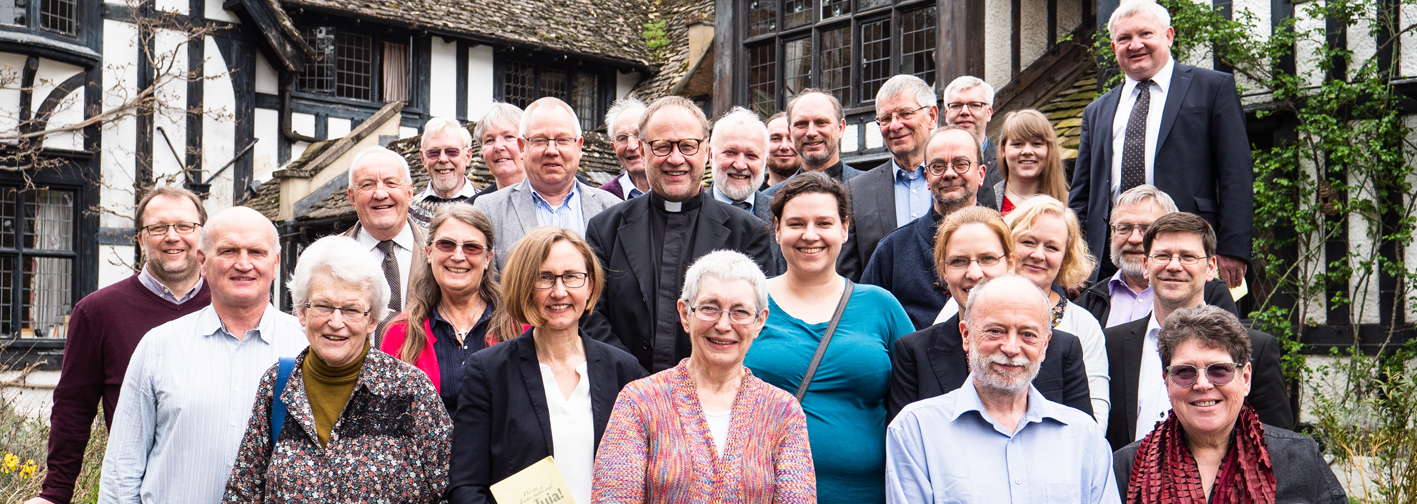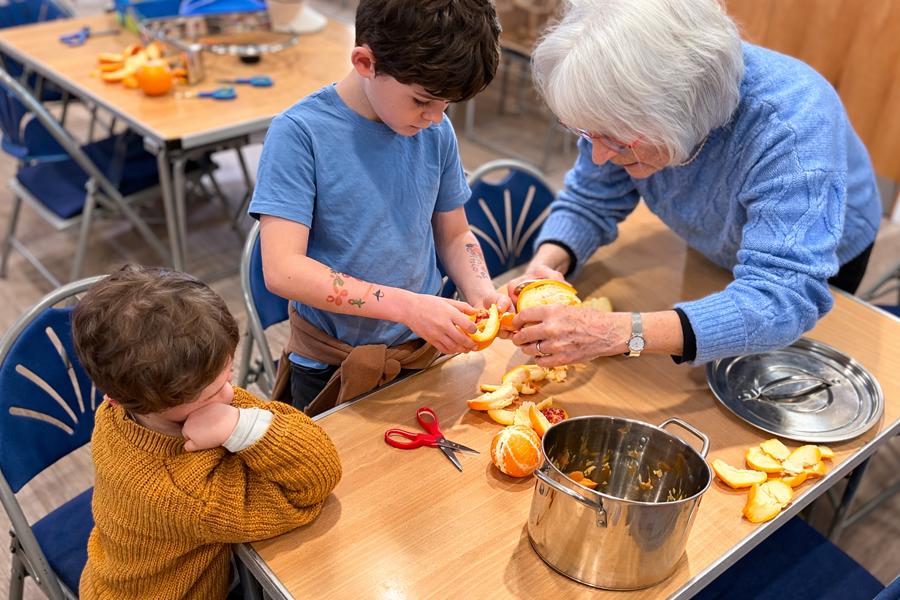
InApril, a group of 28 people gathered at Holland House, roughly a third comingfrom the Diocese of Worcester, a third from our partnership with the ProtestantChurch of Central Germany, and a third Roman Catholics coming from theirdioceses of Birmingham and Magdeburg. One of the English Catholic participants,Jim Quinn, writes his account of the event which took place between the 13 15April.
On Friday 13 April Anglicans,Lutherans and Catholics, 28 in all, gathered at Holland House, for the 2018 ThreeConfessions Conference. This years theme was ecumenism. The weekend was to belived ecumenism, with shared prayer, liturgy, meals and visits to ecumenicalsocial action projects.
After initial welcomes and introductions there was a presentation on the Diocese ofWorcester and Archdiocese of Birminghams joint Anglican/Catholic pilgrimage tothe Holy Land last Year. This was an interesting insight into a wonderfulecumenical event led by the respective bishops, the Rt Revd Dr John Inge and the Very ReverendBernard Longley. It was clearly a success as an ecumenical activity andit was interesting that in the pilgrims final reflections there was no mentionof denominational differences just a delight in the various people they hadmet. How often it is that we meet God in others!
Then Guido Erbrich, a Catholic fromMagdeburg spoke about the fruits of ecumenism from last years Reformation commemorationevents. These included: high levelreconciliation between the Roman Catholic and Lutheran churches; the growingnumber of churches agreeing with the joint Lutheran- Catholic Statement onJustification; growth in mutual trust and spiritual closeness. He drewparticular attention to two major ecumenical cultural events. An exhibition ofmodern art entitled Ecce Homo / Behold the Man and the premier of anorchestral work specially composed by Sir Colin Mawby also called "Ecce Homo". SirColin arranged and conducted the piece with an inter-denominational orchestraand choir. He sees ecumenism as the normal form of church and a particularquote of his I liked was:
God will not arrange our prayers according todenominations, as he described our lack of unity as an unfinished symphony.
 Saturday morning saw us in the north of thecounty visiting ecumenical projects. Firstly in Stourbridge where, after awelcome at St Thomas by the Revd Andrew Sillis and the Bishop of Dudley, the Rt RevdGraham Usher, we made our way to the Vines Caf, a social enterprise venturewhose upstairs space accommodates the LIFE Centre Debt Advice service and isalso the base for the Street Pastors. These serve the mainly youngusers of the late night clubs and pubs in the town. The Pastors take to thestreets at 10pm offering whatever help they can to those in need, including byproviding flip-flops (a challenge for those translating into German!), to womenwho have become separated from their shoes 631 pairs have been given out sofar. One of the pastors was told you are just like my Gran, always there whenI need her.
Saturday morning saw us in the north of thecounty visiting ecumenical projects. Firstly in Stourbridge where, after awelcome at St Thomas by the Revd Andrew Sillis and the Bishop of Dudley, the Rt RevdGraham Usher, we made our way to the Vines Caf, a social enterprise venturewhose upstairs space accommodates the LIFE Centre Debt Advice service and isalso the base for the Street Pastors. These serve the mainly youngusers of the late night clubs and pubs in the town. The Pastors take to thestreets at 10pm offering whatever help they can to those in need, including byproviding flip-flops (a challenge for those translating into German!), to womenwho have become separated from their shoes 631 pairs have been given out sofar. One of the pastors was told you are just like my Gran, always there whenI need her.
Then on to the lovely 17thcentury, Friends Meeting House to learn about their support for localecumenical social action and their own activities, one of which was an annualJo Cox Day inspired by the late MPs quote we have far more in common than that which divides us.
Next Stourport-onSevern where, after lunchkindly provided by the Methodists, we heard about Fairtrade Stourport, theJustice and Peace Group and the local Refugee Support Group. All of these, asin Stourbridge, were fully ecumenical and splendid witnessing to gospel values.
 We then moved on to Harvington Hall for tea, cake and a guided tour. HarvingtonHall is a beautiful moated manor house built in the 1580s by Humphrey Pakington, arecusant Catholic during the reign of Elizabeth I. Now owned by the Roman Catholic Archdioceseof Birmingham and open to the public. In the context of our visit itwas, as Archdeacon Robert Jones said, a reminder of the pain of the Reformation.
We then moved on to Harvington Hall for tea, cake and a guided tour. HarvingtonHall is a beautiful moated manor house built in the 1580s by Humphrey Pakington, arecusant Catholic during the reign of Elizabeth I. Now owned by the Roman Catholic Archdioceseof Birmingham and open to the public. In the context of our visit itwas, as Archdeacon Robert Jones said, a reminder of the pain of the Reformation.
A highlight forme was the extended Eucharist on Sunday morning. After the the Liturgy of theWord, small group prayer and reflection on the readings led to the production oftwo minute sermons and intercessory prayers. After a coffee break we reconvenedin the chapel for the sermons and prayers. What followed were five creativeand prayerful interpretations of the readings. We then continued with the rest of the Eucharist conducted, like all ourworship, in both German and English.
Following groupphotographs in the grounds, Sunday lunch was our final meal together with grace,once again sung as a round, before going our separate ways.
The weekend gave me much to reflect on but limited space prevents mefrom sharing them all with you. An overarching reflection though is that ofwitnessing to gospel values through what we do, as Christians, rather than as Lutherans, Anglicans orCatholics.
Grassroots international ecumenism andChristian social action came to be the heart of the weekend and perhaps withBrexit looming and an increase in narrow nationalist attitudes, theinternational dimension is even more important. We are parables of hope, as oneparticipant put it.

